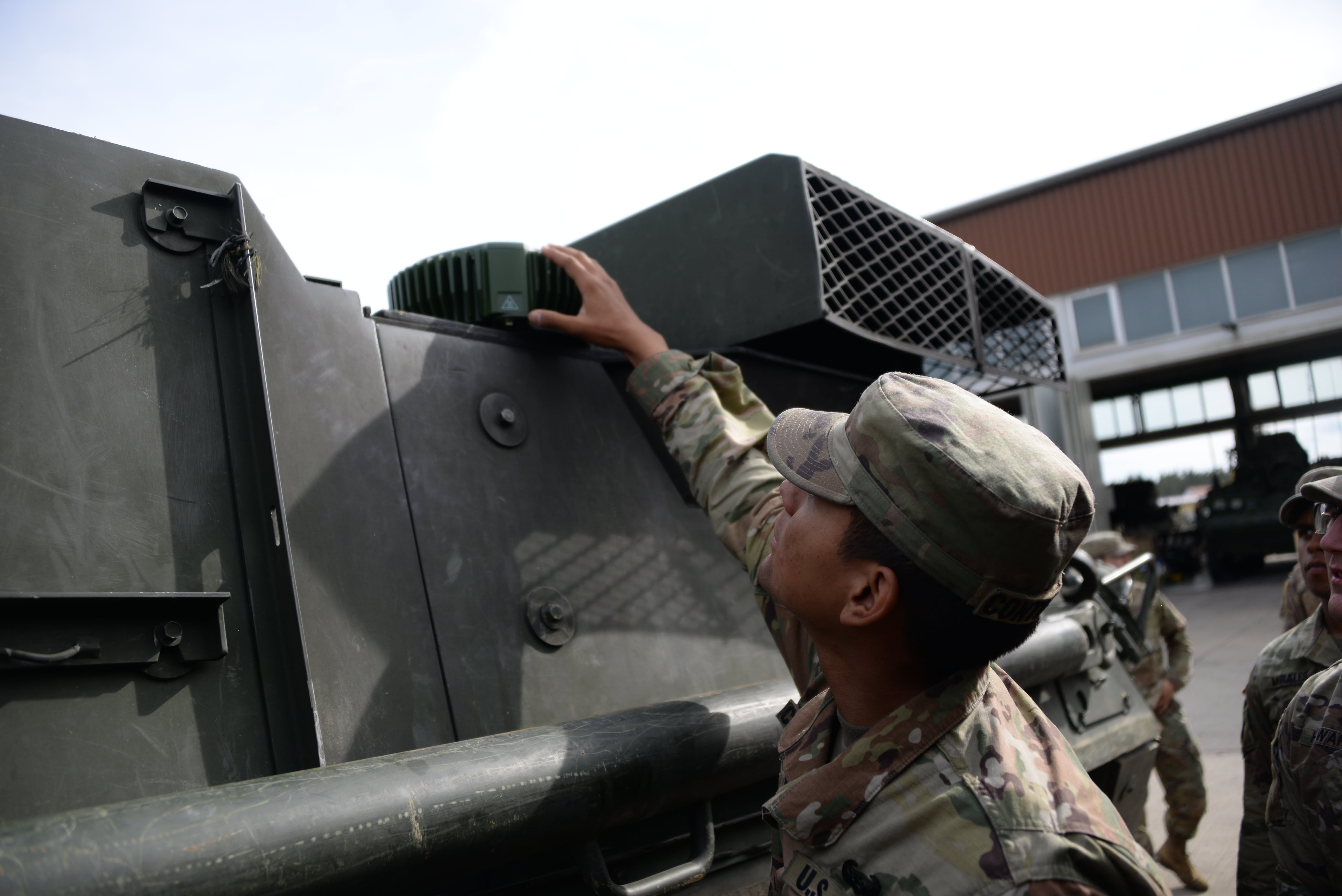WASHINGTON — Collins Aerospace, a subsidiary of Raytheon, won a contract worth as much as $583 million to produce the latest version of a technology that provides soldiers critical situational awareness and context on the battlefield.
The U.S. Army’s Program Executive Office for Intelligence, Electronic Warfare and Sensors announced the Mounted Assured Positioning, Navigation and Timing Systems award on Sept. 8, describing it as “recently” made.
MAPS GEN II ensures troops understand where they are and where they are headed, even in environments where GPS signal is jammed and other systems are being harassed. The technology will be mounted into a variety of armored platforms, including Abrams tanks, Paladin artillery and Bradley Fighting Vehicles, as well as lighter options, such as Strykers and Humvees.
The second iteration is a step up from its predecessor, GEN I, which has been deployed in Europe. The Army outfitted Strykers belonging to the 2nd Cavalry Regiment in Germany with MAPS GEN I in 2019, C4ISRNET previously reported.
“MAPS ensures access to modernized military GPS and fuses additional sources of PNT to include timing and alternate navigation technologies,” Lt. Col. Andrew Johnston, a product manager at PEO IEW&S, said in a statement Thursday. “Assured PNT is a critical enabling capability to multi-domain operations and Army 2030, setting conditions for soldiers to fight and win.”
Following decades of counterterrorism operations in the Middle East, facing forces with less-advanced equipment, the Department of Defense is now preparing for a potential large-scale conflict with China and Russia.
Fights with either world power would likely involve electronic interference and other digital belligerence.
“Now we’re starting to enter theaters and operations where GPS signals can be denied, degraded, interfered with, right? Because of that, we needed to come up with a solution to get around the issue. MAPS helps answer that problem,” Maj. Matthew Szarzynski, an assistant project manager at PEO IEW&S, said Aug. 30 during a media roundtable at Aberdeen Proving Ground, Maryland. “We’re still getting that GPS signal, that positioning, navigation, timing solution. But now it’s more protected. It’s protected from any kind of jamming. It’s protected from any kind of spoofing. So soldiers in the field, with this on their platform, know exactly where they’re at.”
The indefinite delivery, indefinite quantity arrangement with Collins Aerospace is expected to run for five years. IDIQ contracts provide for a number of products or services over the course of a predetermined timeframe. They are frequently used by the federal government and are thought to streamline the procurement process.
The award this week follows a previous 2020 deal in which Collins Aerospace was tasked with MAPS maturation and preliminary integration, clearing a path for low-rate initial production. The value was not disclosed at the time.
Colin Demarest was a reporter at C4ISRNET, where he covered military networks, cyber and IT. Colin had previously covered the Department of Energy and its National Nuclear Security Administration — namely Cold War cleanup and nuclear weapons development — for a daily newspaper in South Carolina. Colin is also an award-winning photographer.





